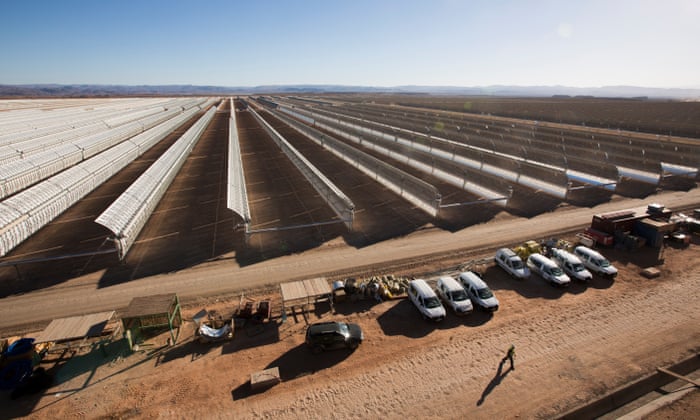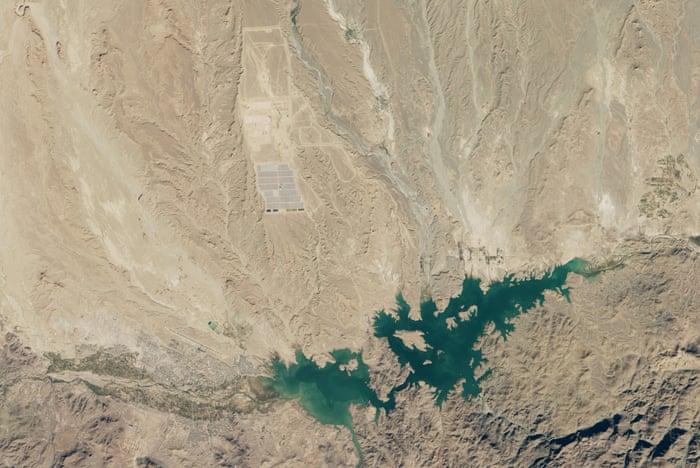Morocco to switch on first phase of world's largest solar plant
Desert complex will provide electricity for more than 1 million people when complete, helping African country to supply most of its energy from renewables by 2030

Morocco’s king will switch on the first phase of a concentrated solar power plant on Thursday that will become the world’s largest when completed.
The power station on the edge of the Saharan desert will be the size of the country’s capital city by the time it is finished in 2018, and provide electricity for 1.1 million people.
After it is switched on, the plant will initially provide 650,000 local people with solar electricity from dawn until three hours after sunset.
“It is a very, very significant project in Africa,” said Mafalda Duarte, the manager of Climate Investment Funds (CIF), which provided $435m (£300m) of the $9bn project’s funding. “Morocco is showing real leadership and bringing the cost of the technology down in the process.”
The north African country plans to generate 42% of its energy from renewables by 2020, with one-third of that total coming from solar, wind and hydropower apiece.
Morocco hopes to use the next UN climate change conference, which it hosts in November, as the springboard for an even more ambitious plan to source 52% of its energy from renewable sources by 2030.

Such a move would have regional implications. CIF estimates that if international banks and governments deployed another 5GW of solar energy, electricity production costs could fall by 14%. Scaling that up to 15GW would cut costs by 44%.
Some $3.9bn has been invested in the Ouarzazate solar complex, including $1bn from the German investment bank KfW, $596m from the European Investment Bank and $400m from the World Bank.
If the dreams of its architects are realised, the resulting energy will eventually be exported north to Europe, and eastwards to Mecca, as well as providing a secure source of energy at home.
“Morocco knew their demand for electricity was growing at 7% a year and that they were dependent on imports for 97% of that energy,” Duarte said. “They had a vision to promote renewables at a time when oil prices were high and they undertook regulatory reforms, put institutions in place, and they have done a great job.”
Comments
Post a Comment